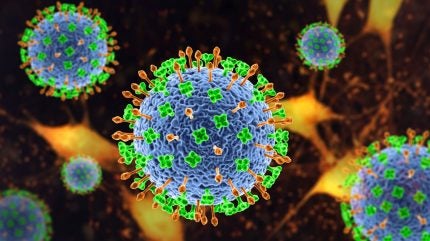
The Coalition for Epidemic Preparedness Innovations (CEPI) has announced plans to commence clinical trials to evaluate MBP1F5, a monoclonal antibody (mAb) against the Nipah virus in India and Bangladesh.
MBP1F5 is intended to prevent infection by binding to the virus.

Discover B2B Marketing That Performs
Combine business intelligence and editorial excellence to reach engaged professionals across 36 leading media platforms.
With $43.5m in funding from the CEPI, the human trials are anticipated to begin next year, subject to regulatory approvals.
Biotechnology company ServareGMP will lead the trials with support from Mapp Biopharmaceutical.
The trials aim to evaluate the safety and tolerability of the antibody in healthy adults across several trial sites in the two countries, which experience annual Nipah outbreaks.
The investment will also facilitate preclinical studies to explore the mAb’s potential for pre-exposure and post-exposure prophylaxis.

US Tariffs are shifting - will you react or anticipate?
Don’t let policy changes catch you off guard. Stay proactive with real-time data and expert analysis.
By GlobalDataMBP1F5 targets the virus’ F protein, a strategy which researchers hope will block the virus from infecting host cells.
This approach could provide protection against the two known strains of the Nipah virus, those from Bangladesh and Malaysia, as well as the related Hendra virus.
The goal is to offer protection for at least six months, allowing time for vaccine-induced immunity to develop.
At present, the Nipah mAb is in Phase I safety testing by the US Department of Defense (US DoD) under a contract to Mapp.
CEPI will support the subsequent assessment of clinical safety testing led by ServareGMP and Mapp on concluding the Phase I trial by the US DoD.
CEPI CEO Richard Hatchett said: “Anyone who is exposed to the Nipah virus, such as healthcare workers and family members caring for those already infected, run a risk of contracting this highly lethal disease.
“A monoclonal antibody capable of offering immediate protection for caregivers and others at risk of infection would be an important addition to our armamentarium against the Nipah virus.”





